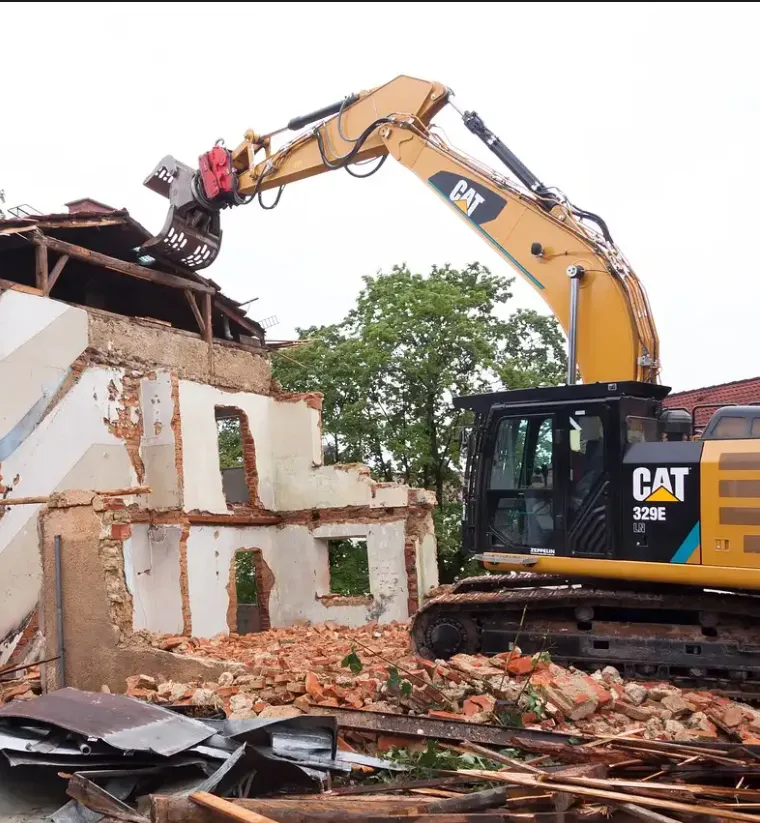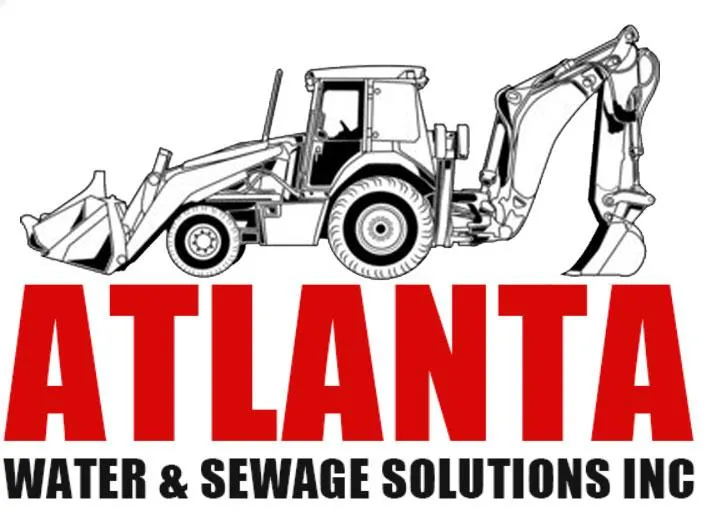
What is the Cost of Demolition Near Atlanta, GA?
1. Why You’re Probably Overthinking the Cost of Demolition
If you’re staring at an old house, garage, or crumbling structure on your property, you’ve probably wondered: “How much is it going to cost just to tear this thing down?” You might be afraid of hidden fees, permit problems, or not knowing who to trust. And maybe, if you’re like a lot of folks we talk to, you’re worried that the price will be way more than it should be.
At Atlanta Water & Sewage Solutions, Inc., we hear this all the time. Demolition feels like a big step. You want to get it done right, but not drained dry in the process. You’re not alone in feeling uncertain — especially with so many different quotes floating around online. The good news? With the right info and a little planning, demolition doesn’t have to be overwhelming or overpriced.
Let’s break down what you can really expect to pay for demolition near Atlanta, what impacts the cost, and how to avoid getting hit with surprise charges.

2. What Kind of Demolition Are We Talking About?
Not all demolition jobs are created equal — and that’s exactly why pricing varies so much. Here are a few common types of demolition:
Residential House Demolition: Full tear-downs of single-family homes.
Garage or Outbuilding Removal: Detached structures, often simpler and cheaper.
Interior Demolition: Removing walls, flooring, or fixtures while keeping the structure intact.
Commercial Demolition: Larger buildings, often involving special permits and safety steps.
Concrete Removal: Breaking up patios, driveways, or slabs.
Each of these comes with different time, tools, crew sizes, and disposal needs — and that’s where the pricing starts to shift.
3. Average Demolition Costs Near Atlanta (By Type)
Let’s talk real numbers. These are typical price ranges we’ve seen across Fulton, Walton, Gwinnett, and nearby counties.
Keep in mind: These are general ranges. Your specific site, structure, and town may push you higher or lower. But if someone quotes you something way outside this range without explanation, it’s okay to ask questions.
4. 7 Factors That Can Raise or Lower the Price
We’ve done demolition work all across metro Atlanta, and these are the top things that impact the cost of your job:
Size of the Structure – Bigger buildings = more time, more crew, more hauling.
Type of Materials – Wood is easier and cheaper to demolish than concrete or steel.
Access to the Site – Tight driveways or sloped lots may need extra equipment.
Hazards (Like Asbestos or Lead Paint) – These require testing and special removal.
Hauling & Disposal Fees – Especially if you’re removing large amounts of material.
Permit Requirements – Different counties and cities require different permits.
Utilities Shutdown – Water, gas, and electric must be properly disconnected.
Some of these you can’t control. But knowing ahead of time helps avoid sticker shock later.
5. Permit Fees, Utility Shutoffs, and Surprise Charges
Here’s where many homeowners get blindsided: permits, inspections, and utility disconnections. These are required by law — and skipping them could get you fined or shut down mid-project.
Permits in Metro Atlanta can cost anywhere from $100 to $2,000, depending on your city and the structure type.
Utility disconnects (electric, gas, water, and sewer) often require advance notice and can cost $300 to $1,000+, depending on complexity.
Some counties may also charge debris dumping fees, especially if materials aren’t separated.
Pro tip from our crew: Ask your contractor to walk you through every single fee in their estimate before work begins.
6. Can You Save Money With DIY Demolition? (And Should You?)
Short answer: Sometimes. But not always.
We get the temptation — rent a dumpster, grab a sledgehammer, and spend a few weekends tearing it down yourself. But here’s what we’ve seen:
Interior demo (like ripping out drywall or cabinets) is usually safe for handy homeowners.
Structural demo (like walls, roofs, or entire buildings) is where things can go wrong fast.
One missed gas line or overloaded dumpster, and suddenly you’re dealing with thousands in repairs, fines, or injuries. We’ve cleaned up a few well-meaning DIY jobs gone wrong, and it usually costs more in the end.
7. How to Choose the Right Demolition Contractor Near Atlanta
It’s not about picking the cheapest bid. It’s about choosing the right team for the job — one that knows the local rules, cares about safety, and actually listens to what you want.
Here’s what we recommend:
Look for local experience. Make sure they’ve worked in your county before.
Ask about licensing and insurance. Never skip this step.
Get a detailed quote. It should include labor, equipment, permits, cleanup, and haul-away.
Read reviews or talk to past clients. (A good contractor won’t mind.)
Don’t ignore red flags. If something feels rushed or unclear, keep asking questions.
At Atlanta Water & Sewage Solutions, we often help clients figure out the scope of their demolition first — even if they’re not ready to start. That’s how important planning is.
8. The Smart Way to Plan Your Demolition Budget
Budgeting doesn’t have to be complicated. Here’s a basic plan we share with our clients:
Get 2–3 quotes from licensed pros who have seen the site.
Add 10–20% cushion for surprises (like unexpected concrete or disposal costs).
Set aside money for permits and utility shutdowns.
Don’t forget cleanup. Final grading or site prep for the next phase may be separate.
If your job involves both demolition and future construction, talk to your builder or general contractor early — sometimes it makes sense to roll services together for cost savings.
9. What Our Clients Typically Spend (Real Numbers from Local Jobs)
Here’s what some of our clients in the Atlanta metro area have spent recently:
Small barn demo in Barrow County: $3,900
Full-home demo in Gwinnett (1,600 sq ft): $16,200
Concrete driveway removal in Forsyth: $2,300
Interior kitchen gut in Clarke County: $5,600
Prices vary — but what doesn’t change is the importance of having a team who communicates, double-checks details, and cares about getting it done right.
10. Final Thoughts: The Real Cost of Peace of Mind
Demolition doesn’t have to be scary — not when you’ve got the facts and a plan. Whether you’re tearing down an old home, clearing space for something new, or just need a structure gone for good, the key is simple: know your scope, know your site, and work with people who actually care.
At Atlanta Water & Sewage Solutions, Inc., we’ve helped homeowners and property owners across Fulton, Greene, Gwinnett, and beyond take that first big step — with no pressure and no surprises. Demolition might be the end of something, but for many of our clients, it’s also the start of something much better.
Need Help Planning a Demolition Project?
We’re here to walk you through the process, from the first question to the final cleanup. Give us a call or send us a message — we’ll help you make sure your budget stays on track, and your site is ready for what’s next.

